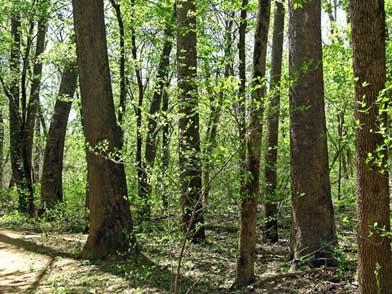Mission
Science for stewardship and sustainability of forests.
Goals
- Provide science-based stewardship of our forests and iconic natural areas such as Voyageurs National Park, Isle Royale National Park, the Boundary Waters Canoe Area Wilderness, Sylvania Wilderness and Porcupine Mountains Wilderness State Park.
- Examine the impacts of forest fires, windstorms, invasive species, and climate change on forests, and how forests adapt to these elements of change. Studies span scales from stands to landscapes, taxonomic groups from earthworms to wildflowers and trees; they bridge the gaps between science, conservation, and management of forests.
- Provide educational opportunities for top-ranked graduate students who are interested in research or management careers in natural resources.
- Provide research, field, and lab experience for undergraduate students, to help them get better preparation for future jobs or graduate school than from classes alone.
- Provide outreach on exciting new discoveries in forest ecology for forest managers and the public.
Background

The Center is a unit with the Department of Forest Resources and College of Food, Agricultural, and Natural Resource Sciences. The Center was founded by the current director, Lee E. Frelich, in 1997. The change to a broader mission and current name occurred in 2010. Peter B. Reich (Regents Professor, Distinguished McKnight University Professor, and F.B. Hubachek, Sr. Chair in Forest Ecology) and Margaret B. Davis (Regents Professor, retired) were the co-founders. The Center is funded by a permanent endowment with the University of Minnesota Foundation, and by grants—please see the section of the website on funding for details.
Forest ecology is now emerging as an important science just as other fields like chemistry and physics did during the early 20th Century. The Center and the Forest Ecology Lab are complementary parts of a world-class program in forest ecology at the University of Minnesota that bring the University of Minnesota national and international recognition as a center of excellence in forest ecology.